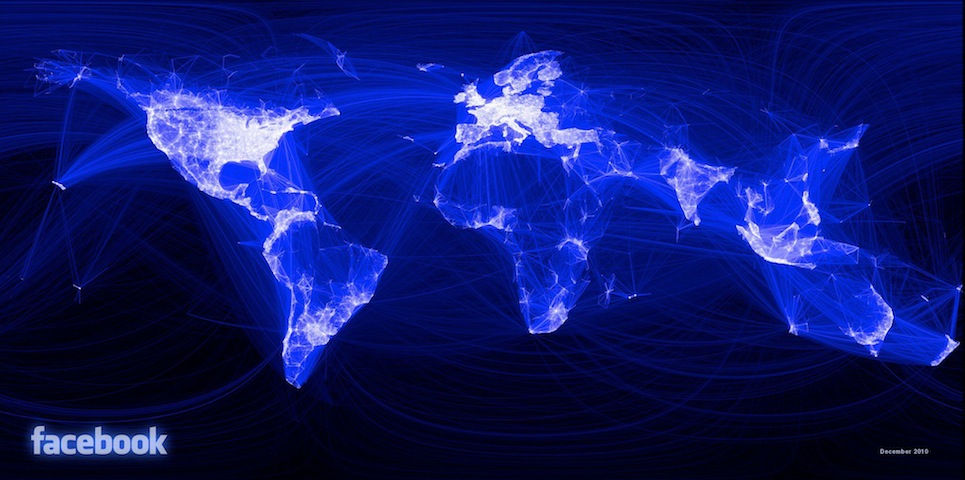Everyone who goes online leaves “digital footprints“, a trail of the things we’ve done on the web. When you pass away, what happens to those status updates, comments and documents you’ve left on the Internet?
Dealing with the passing of a loved one is always difficult but today we have an added complexity of dealing with the online problems of social media sites suggesting people still “like” the deceased or valuable documents locked into cloud computing services.
With more of us storing information into cloud computing services, having important data locked away becomes a real risk and how online storage or software companies deal with deceased estates becomes important.
Online services don’t have a standard way of dealing with the data of someone who has passed away, here’s a quick sampler of some of the different policies.
Facebook
The social media giant has the easiest way to manage a deceased’s profile, simply fill in a form and swear you’re telling the truth. Facebook will then “memorialize” the account.
“Memorializing” is an interesting way of dealing with user’s passing. Rather than deleting the account, Facebook will lock out everyone but friends who are still able to post to the deceased’s wall. In some aspects, this is quite an elegant solution.
LinkedIn
One of the features of LinkedIn is that it gives upfront suggestions of who should be in your network. If you’re a heavy user of the service, you’ve almost certainly encountered a suggested contact that is either inappropriate or distressing so the stakes for LinkedIn in keeping their contacts up to date is high.
LinkedIn’s process of dealing with a deceased’s passing is an email to customerservice@linkedin.com with the word “deceased” in the subject line. You need to give some details on the user’s passing and their account.
Google
With Google offering both social and cloud computing services, they are probably the most important service of all. Google’s requirements for handing over account details are rightly stringent.
Google’s procedure for deceased accounts involves the person first reporting the user’s passing to identify themselves first. Interestingly this has to be done by post.
Twitter
Like Google, Twitter requires anyone reporting a user’s death to mail proof of identity along with a death certificate. Once they are satisfied the user has passed away, they will deactivate the account.
PayPal
“When contacted in regards to a deceased estate we move quickly and with respect to close the customer account. Our policy and process is similar to many large financial institutions including banks When PayPal is notified that an account holder is deceased immediate steps are taken to suspend the account to prevent any unauthorised transfers from the account.
To close the account of someone who has died, PayPal needs to be sent paperwork including; details of the Executor of the Estate and a copy of the death certificate for the account holder. The documentation is reviewed and, once authenticated, the account is closed. If there are funds in the PayPal account, then these will be issued to the Executor of the Estate.
With bankrupt estates we refer this directly to our legal team who deal with them on a case-by-case basis and take action according to the instruction provided by the person or company handling the bankruptcy.”
Apple
No specific policy, the company recommends “customers needing guidance in relation to a deceased estate contact iTunes support at http://www.apple.com/support/itunes/contact/“.
Amazon
No clear policy. The company has been approached for comment.
Digital estate management services
There’s a number of services which help manage digital identities after someone passes away. Mashable reviews a number of these.
Sharing passwords
One simple solution is to share passwords with your next of kin, but that is a horrible security risk which isn’t recommended.
A slightly different solution is to split passwords in two and give half to different people, that still has risks and can get complex.
Probably the biggest problem with passwords is they change. Even if you write the password in your will or share it with trusted loved ones there’s a good chance it may have changed in the meantime.
Central email accounts
Probably the easiest, albeit still risky solution, is to have all online services pointing to one email address. almost every service has a “recover my password” feature which an executor or loved one with access to the central address will be able to recover most account login details.
Should everything else fail there are the courts and every major online service will obey a properly executed legal order although anything involving lawyers invariably ends up messy, difficult and expensive so that course should be the last resort.
As with everything online, balancing security, convenience and privacy is a difficult task for both individuals and companies. It’s not made better by the distress and grief when someone passes away.
Ideally we’d all plan these things and it would be easy on our loved ones although things often don’t turn out that way. It’s as true online as in any other aspect of life.
Similar posts:




